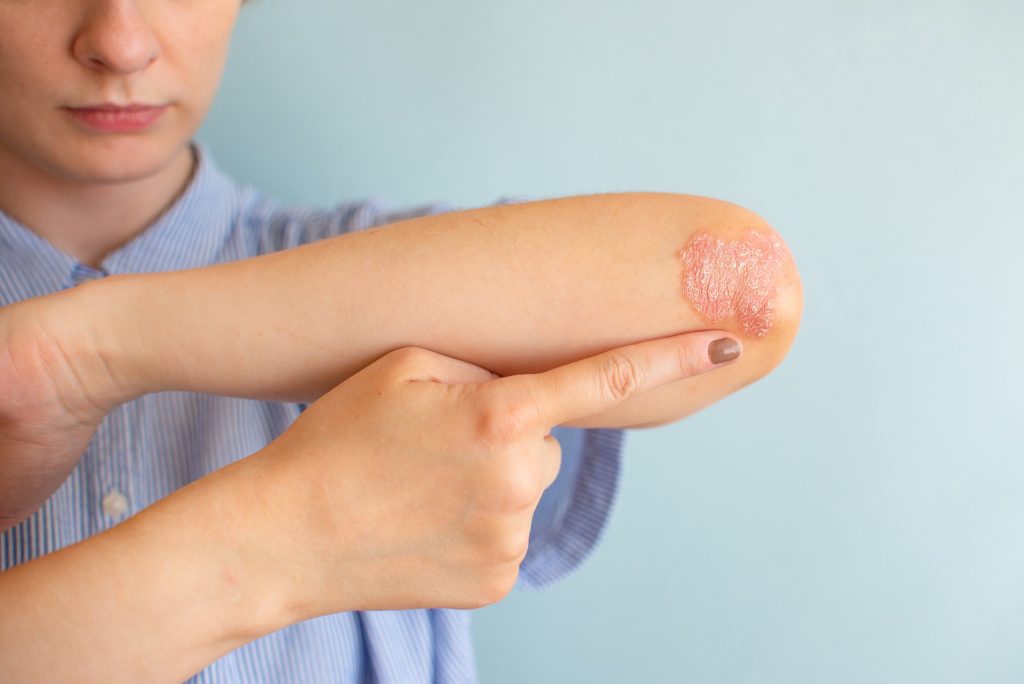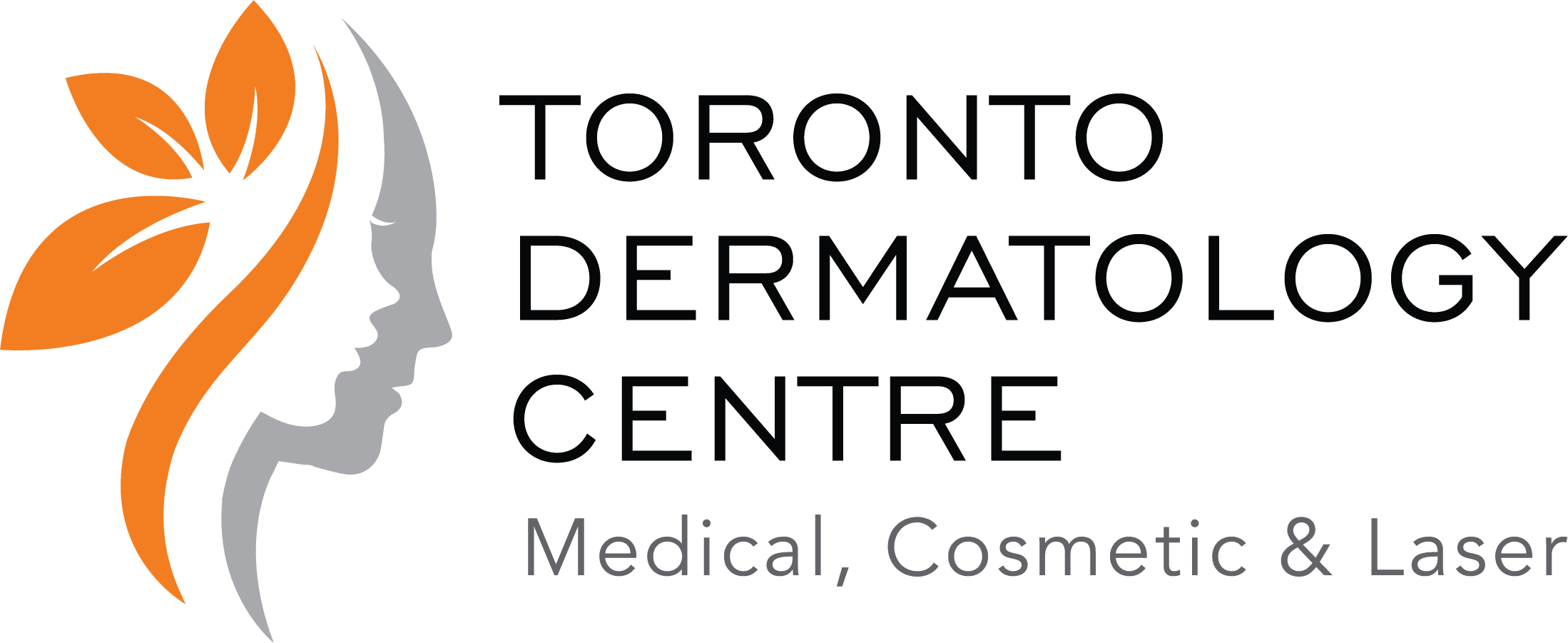
Dr. Benjamin Barankin’s dermatologic expertise was recently quoted in The Chronicle of Skin & Allergy discussing the latest developments in psoriasis treatment.
S pecific interleukin pathways have been identified in addressing numerous skin conditions such as plaque psoriasis, atopic dermatitis (AD), and IL inhibitors have emerged as effective agents to treat these conditions. IL inhibitors are also being examined for conditions that have had few or no biologic options available such as generalized pustular psoriasis, prurigo nodularis, and hidradenitis suppurativa (HS).
Psoriasis and generalized pustular psoriasis
“Tildrakizumab is the newest anti-IL-23 biologic agent to be approved [forpsoriasis], and it gives physicians yet another tool to help patients with severe psoriasis to improve quickly, effectively, and safely,” said Dr. Jaggi Rao, a dermatologist in Edmonton and Clinical Professor of Medicine at the University of Alberta. “Tildrakizumab is delivered via a subcutaneous injection, and its unique feature is that it requires the fewest number of injections compared to other anti-IL-23 agents.”
Dr. Rao noted six injections are needed in the first year, and four yearly injections thereafter. Dr. Ben Barankin, a dermatologist, Medical Director and Founder of the Toronto Dermatology Centre in Toronto, agreed that the launch of tildrakizumab represents a new anti-IL player in psoriasis management that will offer convenient dosing. “The frequency of injection is nice, as it is every three months,” he said. “This is the third IL-23 [for psoriasis] to be approved and join the family of risankizumab and guselkumab.”
A new development in the IL-23 inhibitor family is the recent approval of risankizumab for psoriatic
arthritis, noted Dr. Barankin. Another IL-17 inhibitor now approved for psoriasis is bimekizumab.
“Ongoing studies demonstrate amongst the fastest and most complete psoriasis clearance rates ever
seen with it, more so than the currently available IL-17 inhibitors on the market,” said Dr. Rao.
Dr. Catherine Zip, Clinical Associate Professor, Division of Dermatology, University of Calgary, agreed
that bimekizumab, an IL-17A and IL-17F inhibitor, will offer strong efficacy and its side effect of concern
can be well managed. “In head-to-head trials, it was shown to have superior efficacy to adalimumab, ustekinumab, and secukinumab,” said Dr. Zip. “Oral candidiasis can occur, but it’s mild-tomoderate
in severity, rarely recurrent, and responsive to typical anti-candidal therapies. It [bimekizumab] is
also being studied for treatment of psoriatic arthritis and hidradenitis suppurativa.”
Dr. Barankin described bimekizumab as a distinctive IL-17 inhibitor because of how it works. “As
an IL-17 inhibitor, it is unique because it binds to both A and F,” said Dr. Barankin. “With respect to safety
and efficacy, it will be one of the best IL-17 inhibitors, but it presents a higher candidiasis risk.”
The enthusiasm around the expected availability of bimekizumab is shared by other dermatologists including Dr. Kerri Purdy, Division Head and Assistant Professor in the Division of Clinical Dermatology & Cutaneous Science, Department of Medicine, Dalhousie University, Halifax.
“I am most excited about bimekizumab coming out,” said Dr. Purdy. “I am looking forward to having another option in the IL-17 class. I think that is a great class of agents.”
Generalized pustular psoriasis is a condition for which there is a dearth of effective therapies, noted Dr. Barankin
“We have never had a specific therapy for generalized pustular psoriasis,” said Dr. Barankin.
“Spesolimab is an anti-IL-36 inhibitor which reverses GPP quickly, and most patients attain dramatic improvement within the first week. It’s not a common condition that we see, but when we do see patients with it, it can be very serious and even life threatening. Unlike spesolimab, the medications we currently
use act slowly and do not have as good a side effect profile.
IL inhibitors for AD
Dr. Kyle Cullingham, a dermatologist in Saskatoon and medical director of Saskatoon Dermatology Centre, said dermatologists can potentially look forward to using biologic agents for conditions such as HS. “IL-17 molecules, such as secukinumab or ixekizumab, are being studied for the treatment of HS,” said Dr. Cullingham. “Bimekizumab, which is a new molecule that [has] become available for treating psoriasis, is also being trialled for HS. That is really exciting.”
IL inhibitors are also being explored for their ability to manage conditions such as prurigo nodularis
and notalgia paresthetica, conditions in which itch features prominently, noted Dr. Cullingham. “They
[prurigo nodularis and notalgia paresthetica] are conditions that work on similar pathways as
eczema. Often times, these [conditions] can be the result of chronic eczema. If we can treat them upstream [of the pathway], then we can possibly obtain great results.”
Another biologic option now available in Canada for AD is tralokinumab, a biologic agent that targets
IL-13. It received approval in 2021 and will be available for prescription for moderate-to-severe AD, expanding biologic options beyond dupilumab for AD. “No head-tohead trials vs. dupilumab have been
conducted,” noted Dr. Zip.
Dr. Cullingham added he will be taking part in a Phase IV study on tralokinumab. “It’s exciting to have
another biologic for atopic dermatitis,” he said. “We will get patients on the medication and see how they
fare over the next year. This is an opportunity for real-world data.”
The exploration of many molecules as potential treatments for HS is very encouraging, according to Dr. Cullingham. “There are quite a few molecules being studied for HS,” he said, noting the only approved
treatment to date is adalimumab.
“We haven’t had a lot of new options, so it’s exciting to see.”
Non-proprietary and brand names of therapies: tildrakizumab (Ilumya, Sun Pharma); risankizumab (Skyrizi,
AbbVie); guselkumab (Tremfya, Janssen); bimekizumab (BIMZELX, UCB Canada); adalimumab (Humira,
AbbVie); ustekinumab (Stelara, Janssen); secukinumab (Cosentyx, Novartis); spesolimab (not approved
in Canada); imsidolimab (not approved in Canada); ixekizumab (Taltz, Lilly); tralokinumab (Adtralza,
LEO Pharma); dupilumab (Dupixent, Sanofi, Regeneron).
